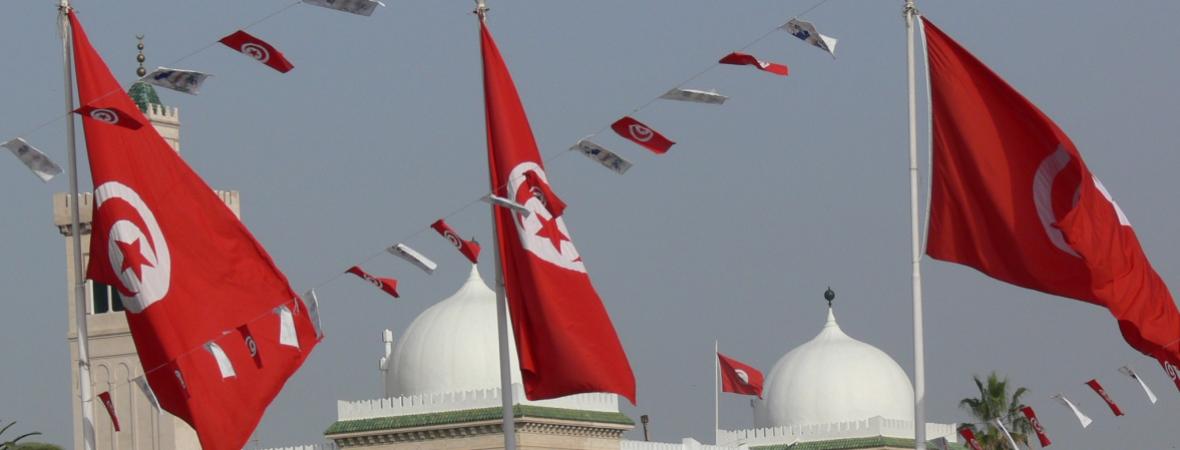Tunisia Poll Shows New Government Opportunities for Reform

It has been nine years since Tunisians kicked off the Arab Spring by taking to the streets to demand a citizen-centered government that would respond to popular dissatisfaction with corruption and economic strife. Nearly a decade later, the country has made significant progress toward democracy, yet many of the same issues that first sparked the democratic revolution remain serious concerns. As the deadline to form a government approaches, Tunisia’s leaders must be prepared to hit the ground running with meaningful steps that address key citizen concerns.
The new government will take power after four months of post-electoral negotiations, as the 2019 polls did not deliver a decisive majority. During this fraught period, Tunisian citizens have been overwhelmingly concerned with one issue: the economy. According to IRI’s most recent poll, a startling 87 percent of respondents believe the economy in Tunisia is either “bad” or “very bad.” When asked what the government’s top priority should be, economic issues made up four of the top five responses—yet most respondents believe the government is not doing enough to address the economy at present. Majorities say that the government is doing a “bad” job at encouraging investment (53 percent) and creating jobs (72 percent), and majorities think that parliament (75 percent), political parties (69 percent) and government ministries (62 percent) are doing “nothing” to address the needs of ordinary people.
The failure by successive governments to address this economic discontent has created distrust amongst voters and limited the new government’s ability to undertake risky reforms. Yet despite frustration with the lack of economic progress and other key priorities, Tunisians show guarded optimism about the political process overall — something that offers an opportunity for the new government to close the trust gap and deliver on citizens’ needs.
For most of the post-revolution period in Tunisia, a growing majority has said that the country is moving in the wrong direction. However, elections have tended to yield modest improvements on this front: for example, the percentage of Tunisians who said the country is headed in the right direction nearly tripled from eight percent in IRI’s pre-election survey to 23 percent today; similar to positive increases on this question around the 2011 and 2014 elections, and the ratification of the new constitution in 2014. For the first time in IRI’s polling in Tunisia, a majority of respondents (54 percent) say that voting gives them some say about how government runs things, and 70 percent of respondents in this survey say that ordinary people are “likely” to influence decisions made in Tunisia—an increase of 14 percent since January 2019, IRI’s last survey before the elections.
The growing faith in the democratic process offers the new government an opportunity to show Tunisians that they’re capable of delivering on the promise of democracy—but in order to do this, it must address the problems that matter most to the public.
IRI is playing a crucial role in that process. In addition to providing political stakeholders with quantitative information on citizen priorities, IRI programs are helping political parties to close the gap between citizens and representatives by bringing together party leaders, civil society, government ministries and members of parliament to collaborate on practical reforms. The Institute also recognizes the vital importance of Tunisian-led civic and voter education initiatives with a focus on youth, women and persons with disabilities—promoting the development of a robust culture of citizenship that not only includes electoral participation, but also civic participation beyond the ballot box. In 2019, IRI-sponsored voter mobilization events reached nearly 52,000 Tunisians in person and nearly 150,000 Tunisians through digital technology, including radio, social media, advertisements and SMS campaigns—efforts that have continued in the post-election period to ensure that voters stay informed and connected outside of election season.
When Tunisia’s new government finally takes office, it will be accountable to a citizenry that is fed up with half-measures and wants to see the promise of its democratic revolution succeed. Political leaders must seize this moment to institute real, much-needed reforms—or risk undercutting the progress that has been made on Tunisia’s democratic journey.
Top